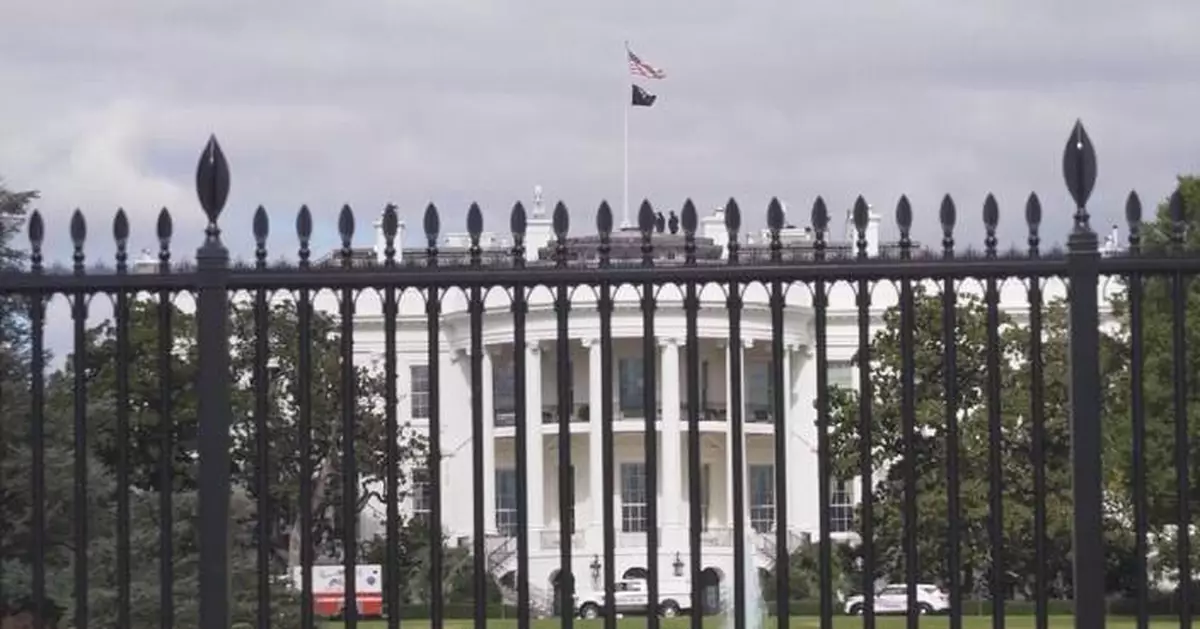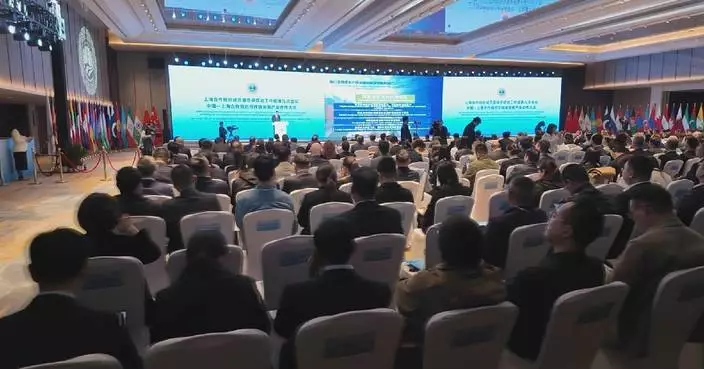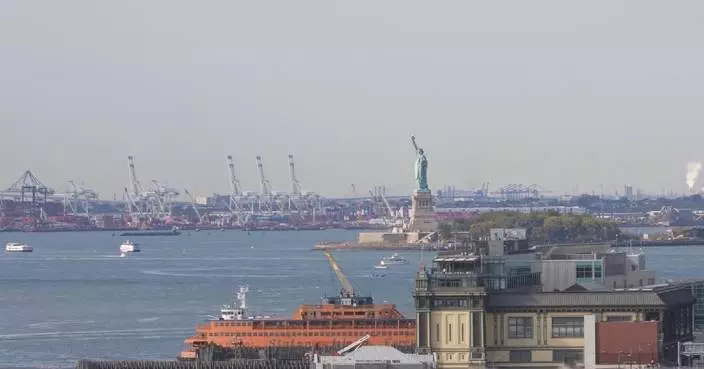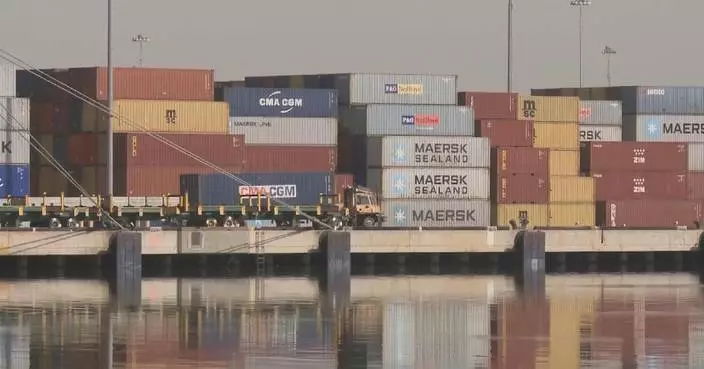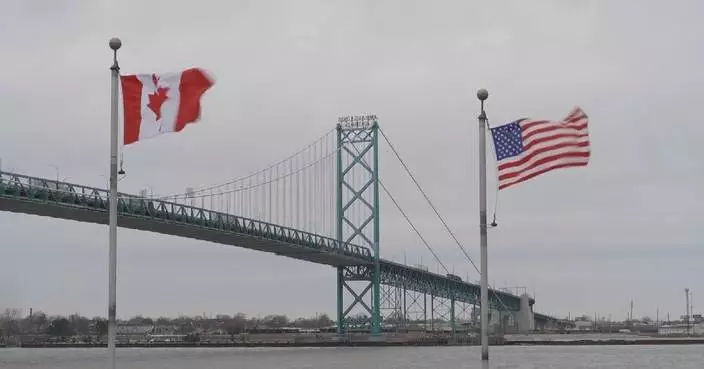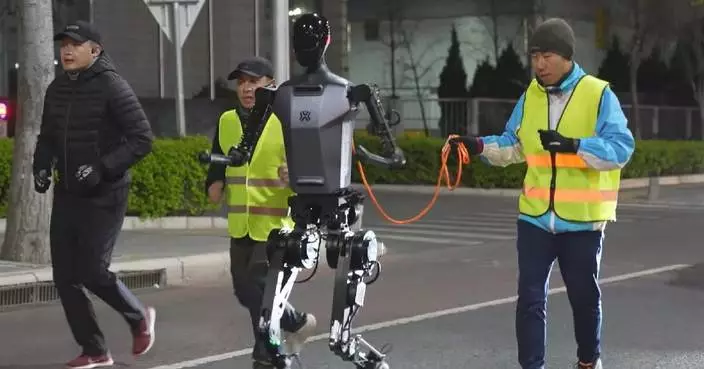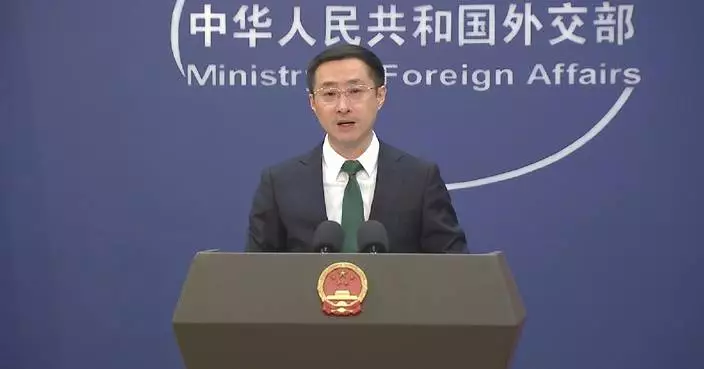The United States' tariff measures have drawn widespread opposition from the international community, with word leaders and experts criticizing these U.S. actions as harming both its own and global economies.
The European Union (EU) expressed deep concerns on Sunday over the imposition of U.S. tariff , calling it harmful to countries around the world, including the poorest countries.
Reuters reported on the same day that the EU plans to implement countermeasures against 28 billion U.S. dollars' worth of U.S. imported goods.
Italian Prime Minister Giorgia Meloni stated on Sunday that Italy disagrees with U.S. tariff decisions and will take all necessary measures to respond.
On the same day, Greek Prime Minister Kyriakos Mitsotakis said U.S. tariff measures have brought new uncertainties to the global economy.
It is certain that no one can benefit from a trade war, he noted.
Japanese Prime Minister Shigeru Ishiba reiterated on Monday that Japan will take all possible measures to respond to U.S. tariffs.
Japan's Chief Cabinet Secretary Yoshimasa Hayashi earlier expressed deep regret over the U.S. actions and highlighted their significant impact on the global economy and the global multilateral trading system.
Meanwhile, international media reported that the U.S. trade policy harms others without benefiting itself.
An editorial in the French newspaper Le Monde described U.S. tariff measures as shocking. This confrontational trade approach creates economic uncertainty.
According to reports in the U.S. media, in response to the tariffs, American retailers may need to increase prices of everyday goods by 10 percent to 12 percent.
The reports also mentioned that an analysis by the budget lab at Yale University previously suggested that U.S. tariff measures would exacerbate inflation in the country, leading to a loss of 3,800 U.S. dollars per average American household.
Goldman Sachs, the American multinational investment bank and financial services company, has raised the likelihood of a U.S. recession to 45 percent, as indicated in a report released on Sunday. The report highlighted that U.S. tariff measures will impact the American economy and drive up inflation.
Swiss banking giant UBS recently stated that U.S. tariff measures will significantly hinder its economic growth. It forecasted that the country's GDP growth for this year will be below one percent, with a possibility of a recession occurring within the year.
The market panic triggered by U.S. tariff measures continues to weigh on investor sentiment. On Sunday evening, as trading for the new week began, the major stock index futures in the New York market extended their sharp decline. Asian stock markets also fell broadly on Monday.
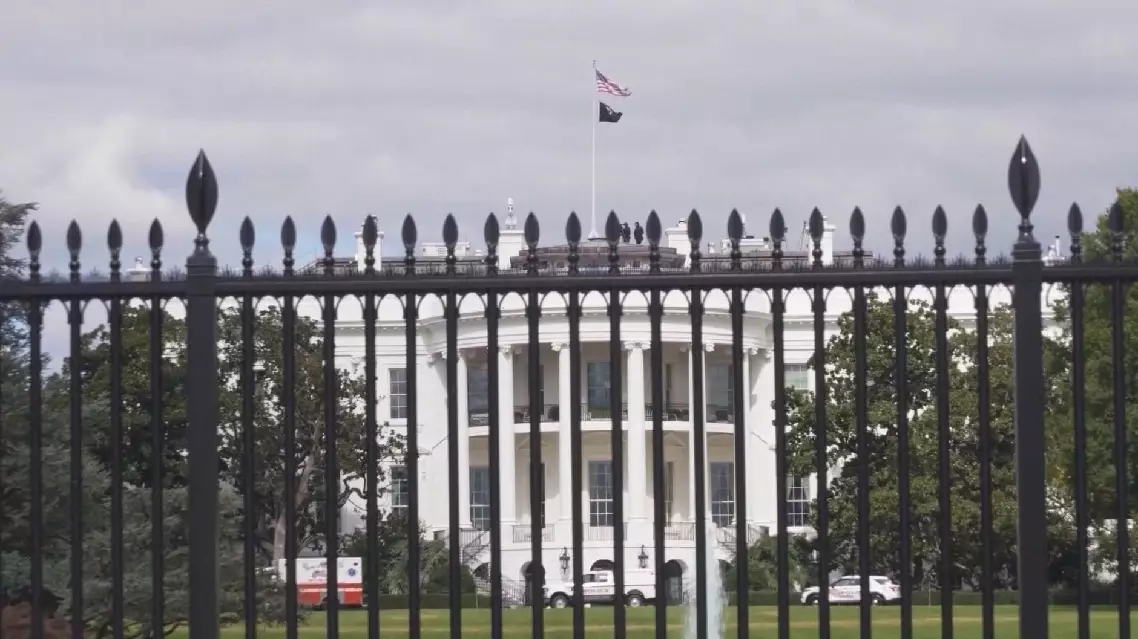
U.S. tariffs draw global backlash over economic harm
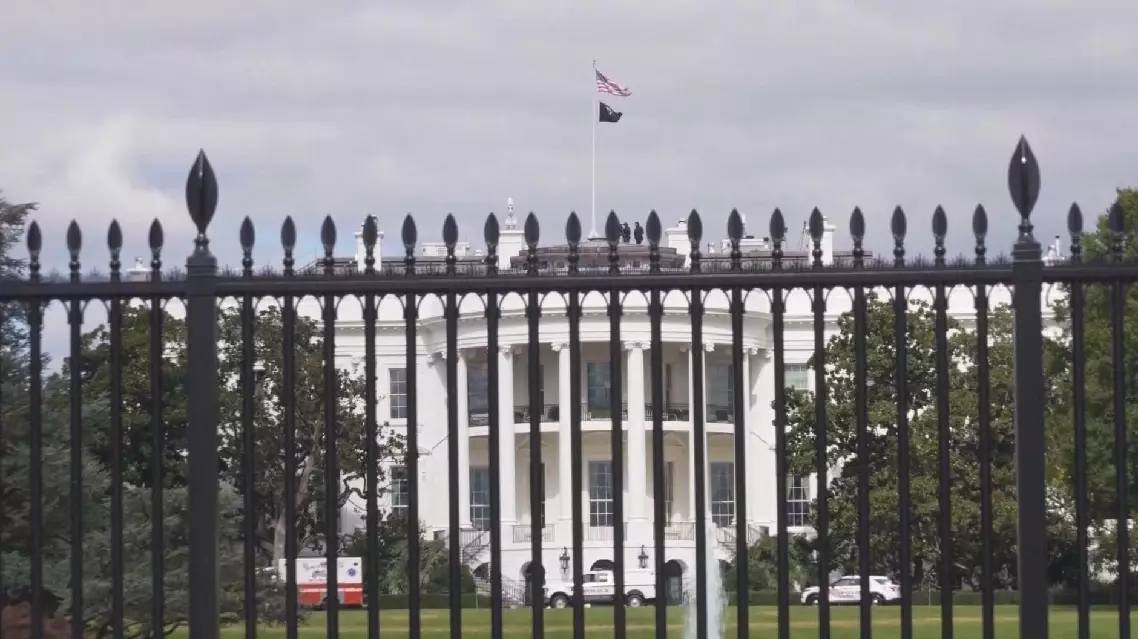
U.S. tariffs draw global backlash over economic harm
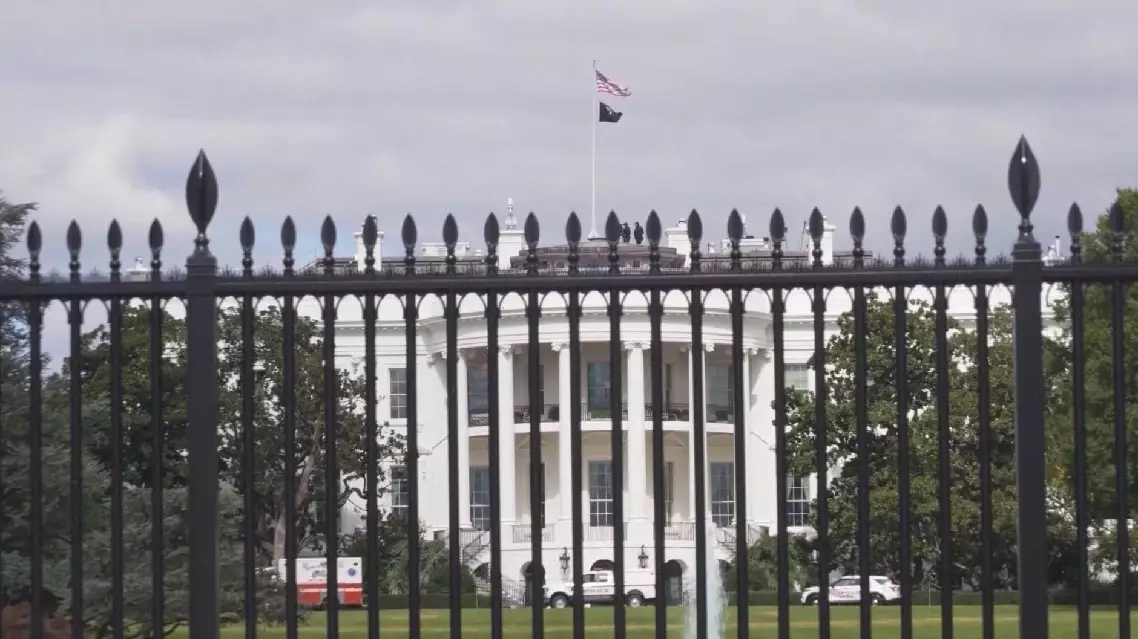
U.S. tariffs draw global backlash over economic harm
As the uncertainty surrounding the Trump administration's tariff policies fuels inflationary fears in the United States, a number of consumers have resorted to panic buying amid growing concerns that costs could shoot up.
With price hikes expected on goods such as automobiles, beauty products, and even on everyday food items, many residents say they have been rushing out to stock up before prices climb even further.
In recent street interviews with the China Global Television Network (CGTN), New York residents shared how the impact of the ongoing tariff war is affecting their daily lives.
"Actually, I already have. I've already started stocking up. My mother has a whole stockpile, and she's panicking. But I told her we're going to be okay, as we live in New York City," said Amelia Guilford, a retail worker who was visiting her mother in the city.
With many anticipating a rise in inflation, many Americans are concerned about the long-term financial impact, and say they are now being more prudent with their money.
"I think we have to [spend more carefully]. Because otherwise you're going to be in real trouble economically or in debt, because if you spend more than what you get, that's going to be a lot of trouble," said Jose Pena, a janitor.
The tariffs, which directly affect the price of imported goods, have led to predictions of significant price increases, particularly on goods coming from China, which has been the biggest target of the tariffs.
"[Products] from China are going to be more expensive. I cannot exactly name what kind of products one by one, but every one that comes from China is going to be more expensive, without a doubt," said Pena.
Public frustration is evident, with some questioning the logic behind U.S. President Donald Trump's risky and unpredictable pursuit of tariffs on other countries, as the debate over the long-term consequences of the policy intensifies.
"I think he's just making enemies, and I trust him not. And I think he's making a mess of everything. I think it's all going to come around and flip back. The changes he's doing are completely unsustainable," said Lois Adams, a nurse, as she expressed her disapproval of Trump's approach.
Ordinary Americans are facing up to the harsh reality of rising prices and remain anxious about the future economic impact of the continuing trade war.
Jerome Wilkins, a security worker, voiced concerns about the broader societal implications of the tariffs, warning it will again be the poorest people who suffer the most.
"I think that the tariffs are horrible. I think that it's like privatizing America, and instead of America being a country for the people, it's a corporation for the rich. And it's just for them to get richer, while the poor get poorer. And that's basically how I feel," said Wilkins.
Meanwhile, the Chinese government announced it would raise tariffs on all imported U.S. goods from 34 percent to 84 percent, effective Wednesday, in response to the U.S. decision to escalate its "reciprocal tariffs" on Chinese products, further adding to the economic strain.
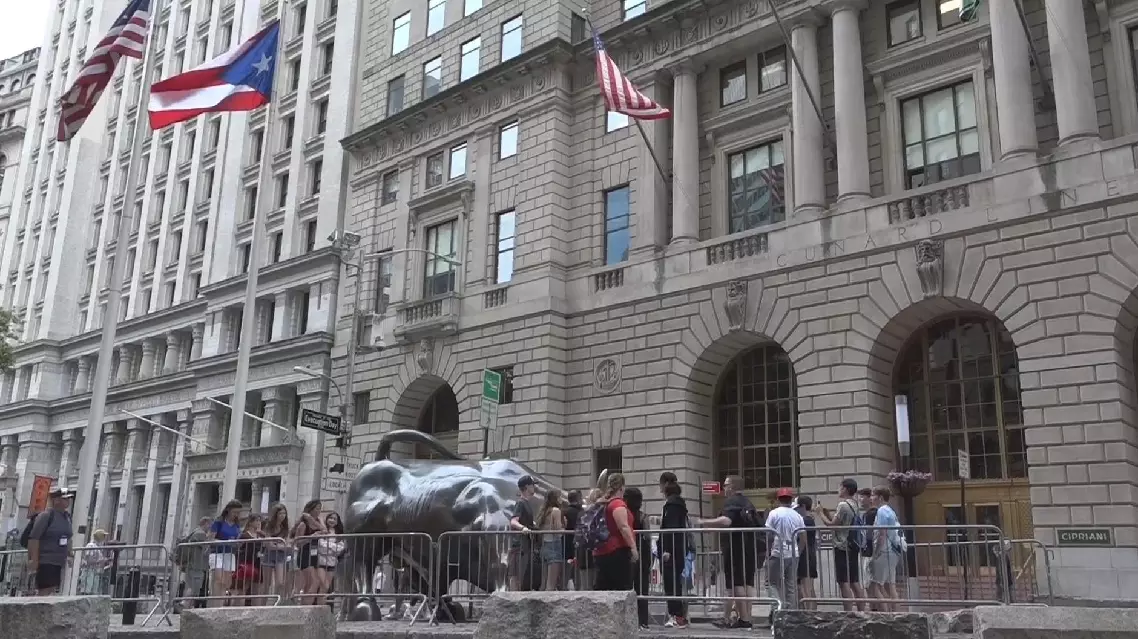
Tariff war triggers panic buying in US, raising public concerns over rising costs





